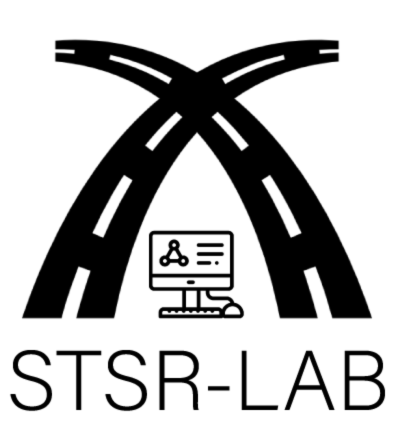Saving lives through innovative technology
Improving road safety for all through research and development






Research Areas
Traffic Conflict Analysis
Connected and Automated Vehicles
Human Factors and Driving Behaviour
Engineering Factors in Traffic Operation and Safety
Econometrics and Artificial Intelligence Applications in Transport Engineering
Black Spot Identification Techniques
Travel Behaviour
Driving Simulator Research
About
Smart Transport Safety Research Lab
Smart Transport Safety Research Lab is focused on developing intelligent technologies to save lives and road traffic injuries. By applying econometric models and Artificial Intelligence, this lab is aimed to improve the theoretical understanding of road safety dynamics at transport facilities and develop efficient and low-cost countermeasures for road traffic infrastructure to combat road traffic crashes.

- Our Mission
- Our Vision
- Values
The mission of the STSR-Lab is to improve the theoretical understanding of road safety dynamics at transport facilities and develop efficient and low-cost countermeasures for road traffic infrastructure. The Lab aims to achieve this mission by conducting research in various areas, including Traffic Conflict Analysis, Engineering Factors in Traffic Operation and Safety, Human Factors and Driving Behaviour, Vulnerable Road Users, and Connected and Automated Vehicles.
The Smart Transport Safety Research Lab (STSR-Lab), led by Professor Haque, has a clear vision to save lives and reduce road traffic injuries by developing intelligent technologies for road safety.
The STSR-Lab values innovation, collaboration, and making a positive impact on society. Its road safety engineering research is generally funded by the Australian Research Council (ARC) and various government authorities in Transport. Prof Haque’s co-founding of Advanced Mobility Analytics Group (AMAG) demonstrates its commitment to translating research into practical solutions and delivering them to road traffic authorities. Prof Haque’s contributions as an editor of high-impact journals and his training of road safety professionals further demonstrate the commitment of STSR-Lab to excellence and making a positive impact in the field of road safety.
STSR-Lab leads the future of transportation safety with cutting-edge research across a wide range of industries
Transportation Infrastructure
The lab can research and develop new technologies for improving the safety of transportation infrastructure, such as intelligent traffic management systems, which use real-time data to optimize traffic flow and reduce congestion. The lab can also work on developing smart roadways, which use sensors and other technologies to detect and respond to hazards such as ice or debris on the road.
Automotive Industry
The smart transport safety research lab can focus on developing advanced driver assistance systems (ADAS) such as lane departure warning, forward collision warning and adaptive cruise control, to reduce the number of accidents caused by human error. The lab can also work on developing technologies for autonomous vehicles, including sensors and navigation systems, to further reduce the risk of accidents.
Insurance
The lab’s research can help insurance companies to develop new products and pricing methods based on the new technologies and insights. Such as usage-based insurance, which uses data from connected vehicles to set insurance rates based on an individual driver’s habits and behaviors, or new products that can help to mitigate risks in transport and logistics.
Logistics and Supply Chain
The lab can research and develop new technologies for improving the safety of logistics and supply chain operations, such as real-time monitoring of cargo trucks to detect and prevent accidents. The lab can also work on developing technologies for efficient cargo management and tracking, to minimize the risk of accidents.
Public Transportation
The lab can work on developing and implementing new technologies to improve the safety of public transportation systems, such as real-time monitoring of buses and cars to detect potential problems and improve response times in case of accidents.
Emergency Response
The lab can research and develop new technologies for improving emergency response times and capabilities, such as rescue operations, and real-time monitoring of emergency vehicles, which can help first responders to quickly and accurately locate and reach accident scenes.
Grants
Projects
Publications
Team Members
Featured Projects
This project assesses the suitability of advanced video recognition technology in assessing road safety of transport facilities.
READ MORE
Automated Video Analysis of Three Complex Brisbane Intersections: A Safety Evaluation Using Advanced Video Recognition Technology
Road traffic crashes are responsible for hundreds of lives and thousands of injuries on Australian roadways each year.
READ MORE
Proactively detecting motor vehicle crash black spots based on their underlying behavioural, engineering and spatial causes
This project aims to balance road safety and efficiency as conflicting goals of transport systems mixed with connected and automated vehicles (CAVs).
READ MORE
